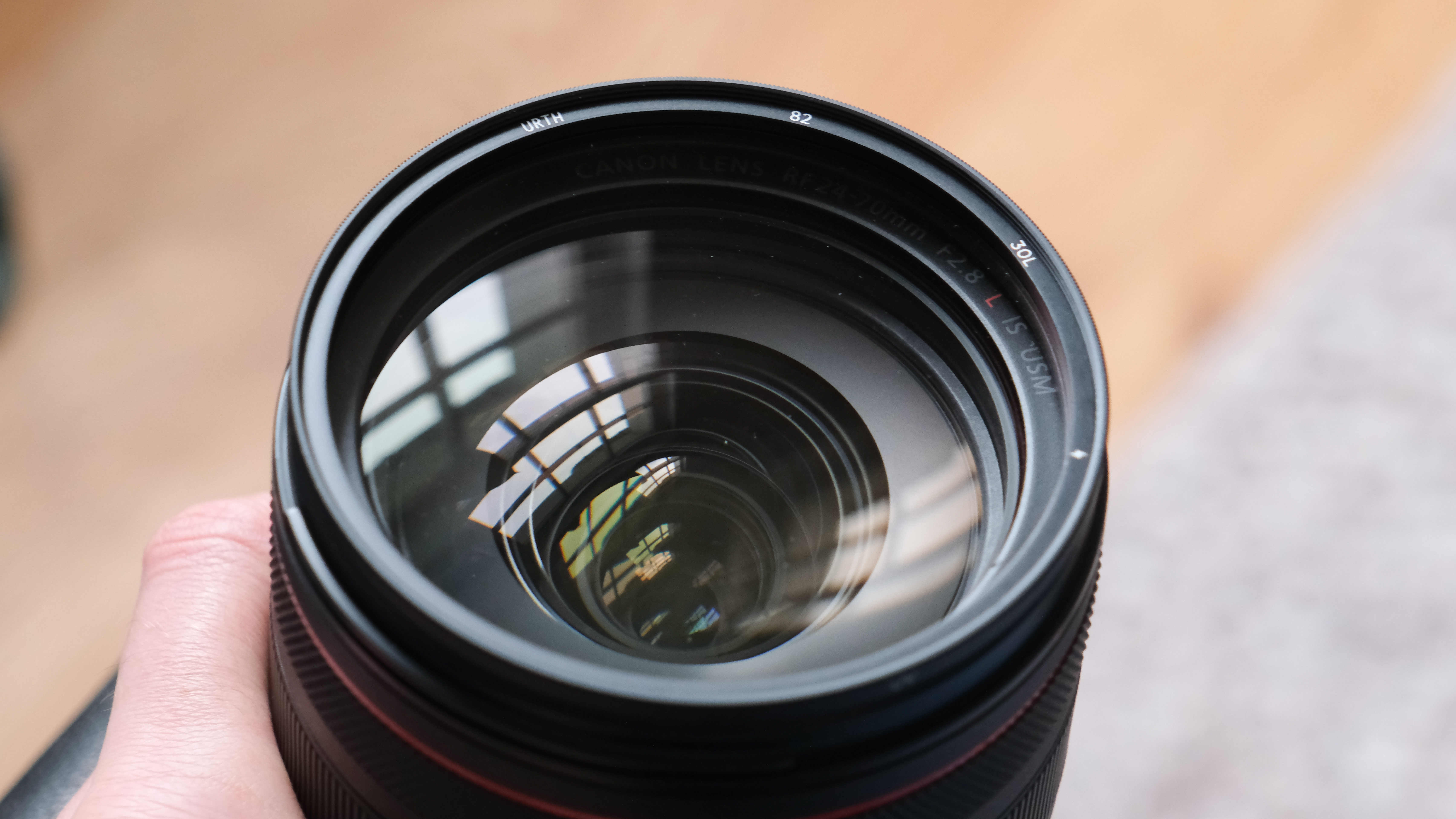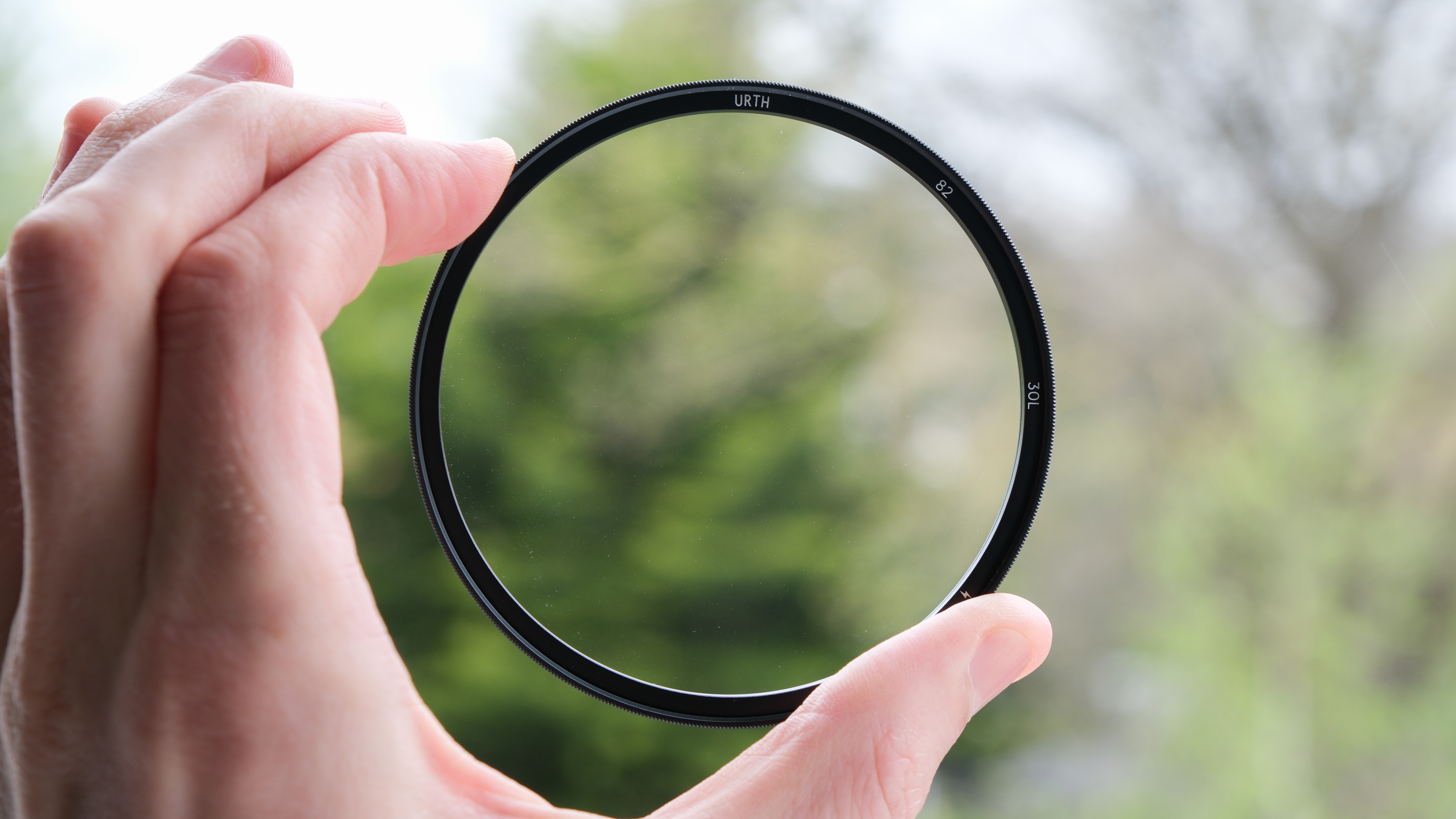
A UV lens filter is exactly as it is named, a lens that filters out UV rays from hitting your camera lens that can cause unwanted changes in contrast or unnatural hues. UV filters have existed for decades, all the way back to the film era when filters were often a necessity to cut UV wavelengths from hitting sensitive film.
However, with modern digital cameras, there is less need for UV filters, as coatings on the lenses themselves have improved and digital sensors are less prone to the effects of UV. However, UV filters can arguably still have a positive effect on cutting UV haze and blue color casts in images.
Mostly though today, UV filters are seen as inexpensive lens protectors to take the brunt of any scratches that might otherwise have caught the front lens element. A UV filter that does not affect image quality is a fantastic accessory for any photographer whose lens is at risk of damage as an added layer of insurance.
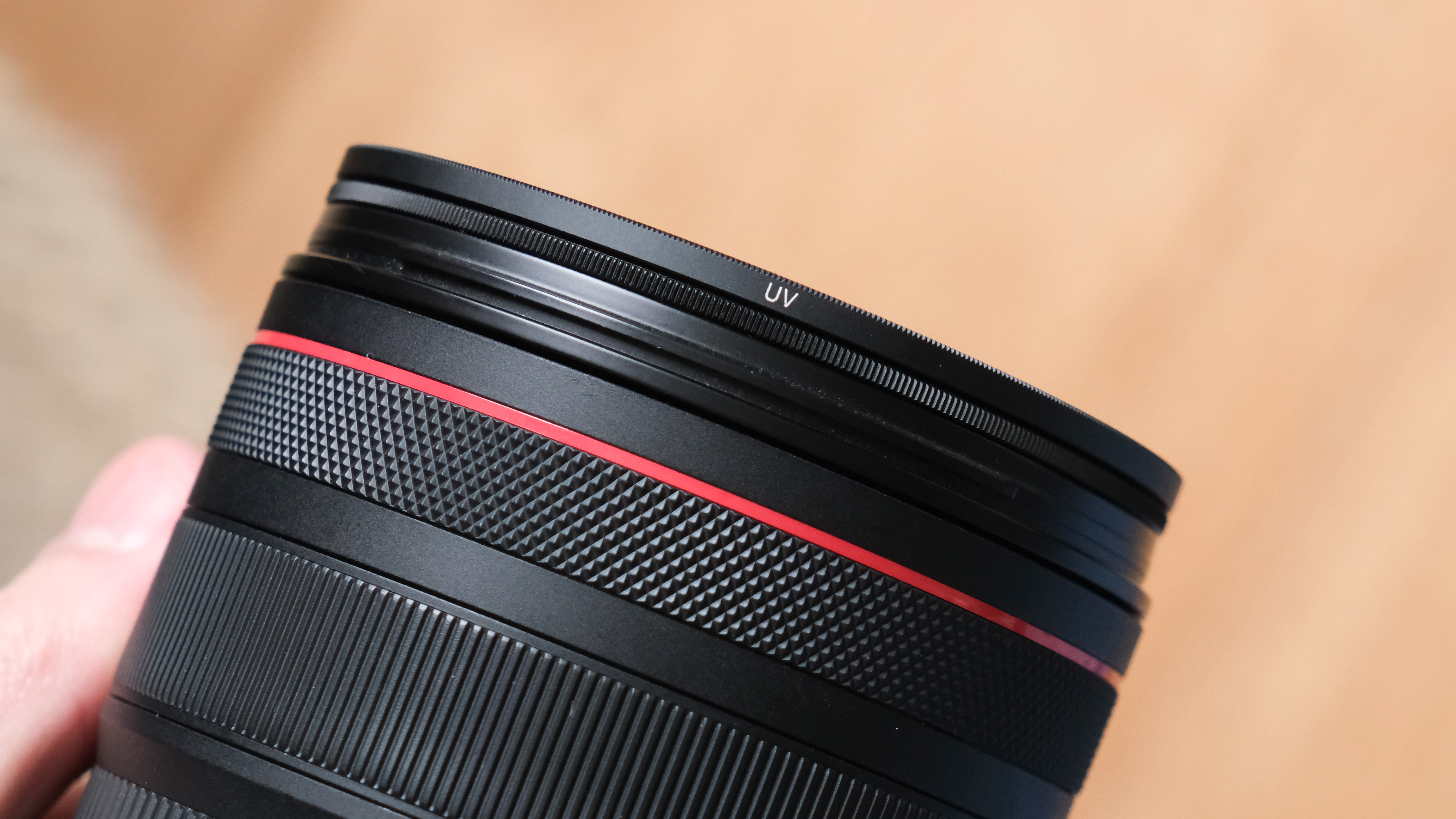
Urth UV Filter Plus+: Specifications
Urth UV Filter Plus+: Price
It is so hard to judge the value of UV filters as each one claims so much that is hard to substantiate. The amount you pay will also depend on the size of your filter thread.
There are cheaper options (including from Urth), and pricier options, but the Urth Magnetic UV lens filter (Plus+) sits somewhere in the middle and does offer quite a lot of value for its price tag. The filter is both magnetic and screw in, offers premium German SCHOTT B270 glass that is 30-layer coated, and the design and the extras like the metal case or caps really make up its value.
Urth UV Filter Plus+: Design & Handling
The big thing that sets apart the Urth Magnetic UV lens filter from other filters is the magnetic component. Throughout camera history, most filters have screwed into the filter threads that are built-in to the front of nearly every lens out there. Now it is possible to craft super strong and super thin magnets, filter manufacturers have seen the opportunity to use this for quick-change lens filters.
I have used a few different brand’s magnetic attaching filters, and I am not wholly convinced, and this magnetic UV filter from Urth does nothing to change that opinion. The magnets in the filter are strong enough to hold the filter on, but not so strong that the slightest sideways knock didn’t send the filter careering off the front. UV filters should really be dual-purpose and also offer some protection to the front element of a lens, but I wouldn’t trust this filter for that.
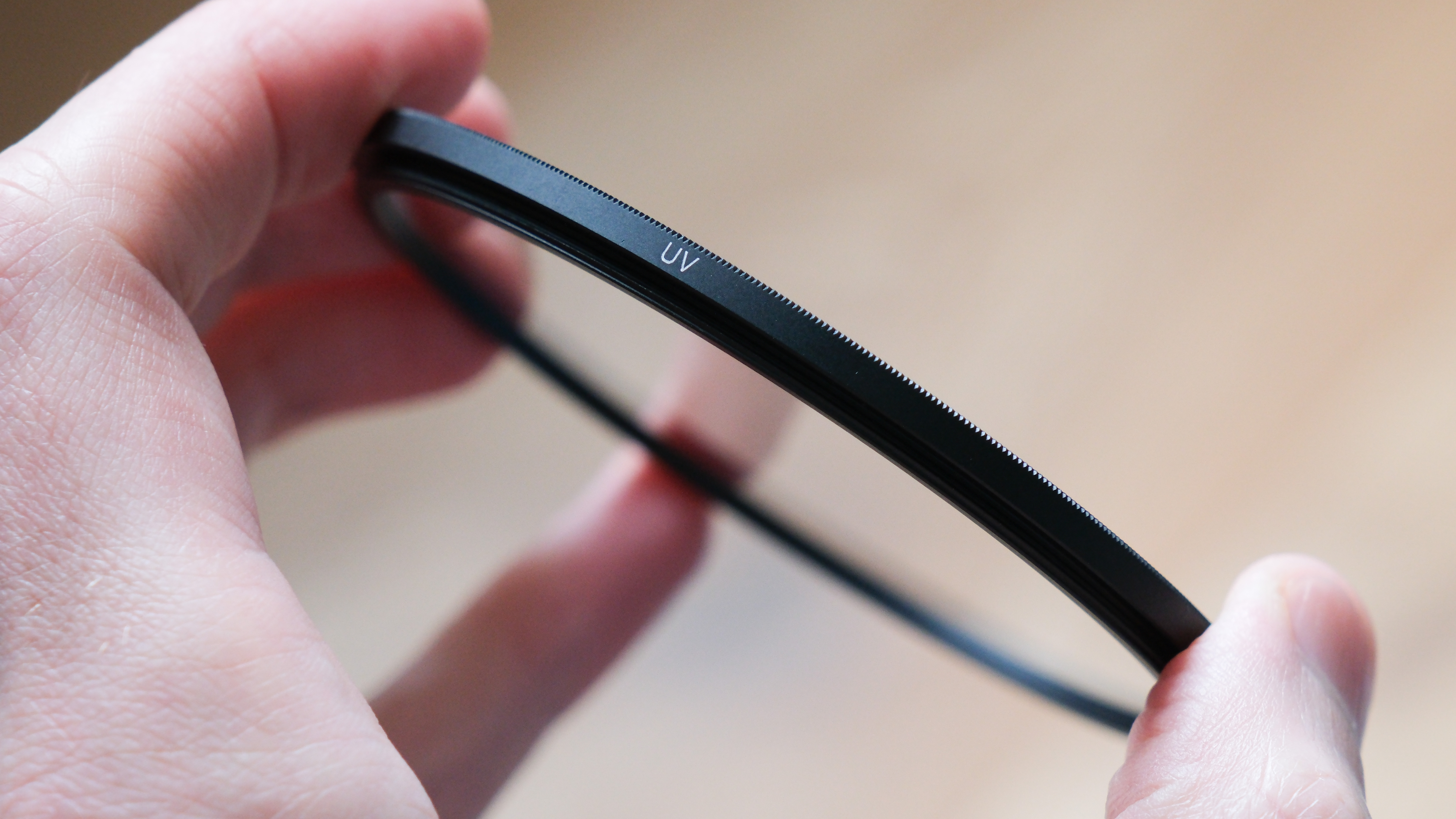
The filter is also perhaps not machined properly for the holder, with there being a good few millimeters of movement as I push the filter around, it also rattles substantially when I shake the lens which demonstrates its rather loose attachment. If this is intended then it is an odd choice in my opinion.
See the below video for an example of this rattling behavior, and how easy it is to send the filter to the floor with a flick of a finger (side note: the filter has fallen off a few times but has come out unscathed).
However, the magnetic filters thankfully are also threaded, so if you get the magnetic holder out of the way, the filter itself can screw directly into the front of a lens just like if you bought a screw-in-only type filter. The magnetic version is more expensive though, so I do feel cheated now using it as a regular screw-in filter.
I will lavish compliments on Urth’s design – I really love the clean and minimalist look of the filter. The UV Plus+ filter also comes with either a metal tin or metal filter caps depending on exactly how you buy it, which are both very nicely made and a step above other big brand names that come with shoddy plastic cases, or no case at all!
Apart from by design, there are numerous UV filters out there, and separating them can often be difficult. The first thing to look at is the glass used, which will often dictate the price and quality of the filter. The Urth Plus+ UV filter used German-made Schott glass, which the company claims is some of the best in the world, although I am sure certain Japanese manufacturers would disagree with that.
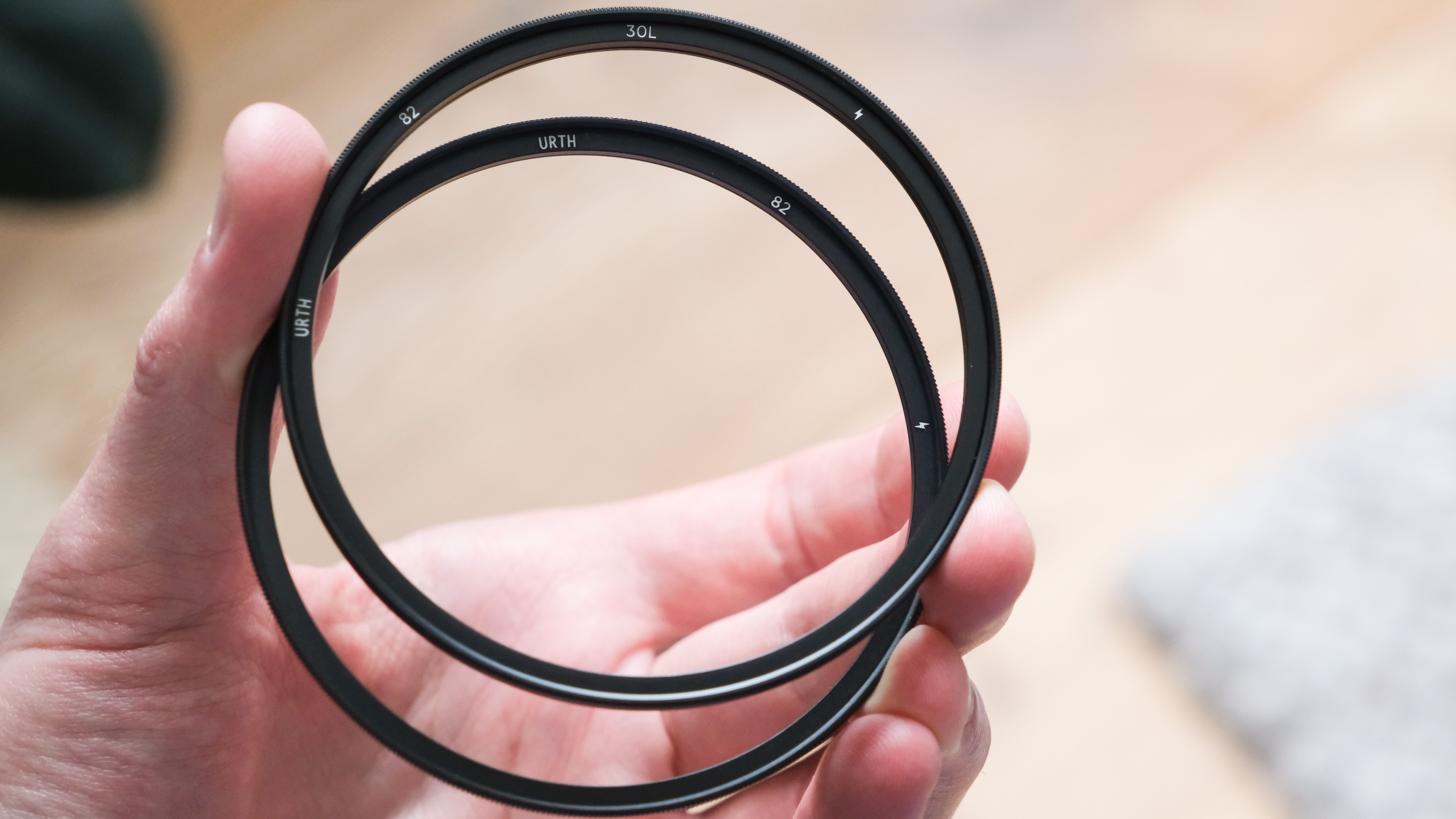
Urth UV Filter Plus+: Performance
Now we come to the Urth UV filters' saving grace, and that is just its overall image quality. In my tests, in almost all images, I could see no discernable difference in image sharpness from having the filter attached. There were also no unwanted changes in contrast or other effects on images. For the majority of the time, it is almost like the UV filter isn’t even there, which actually is exactly what you want.
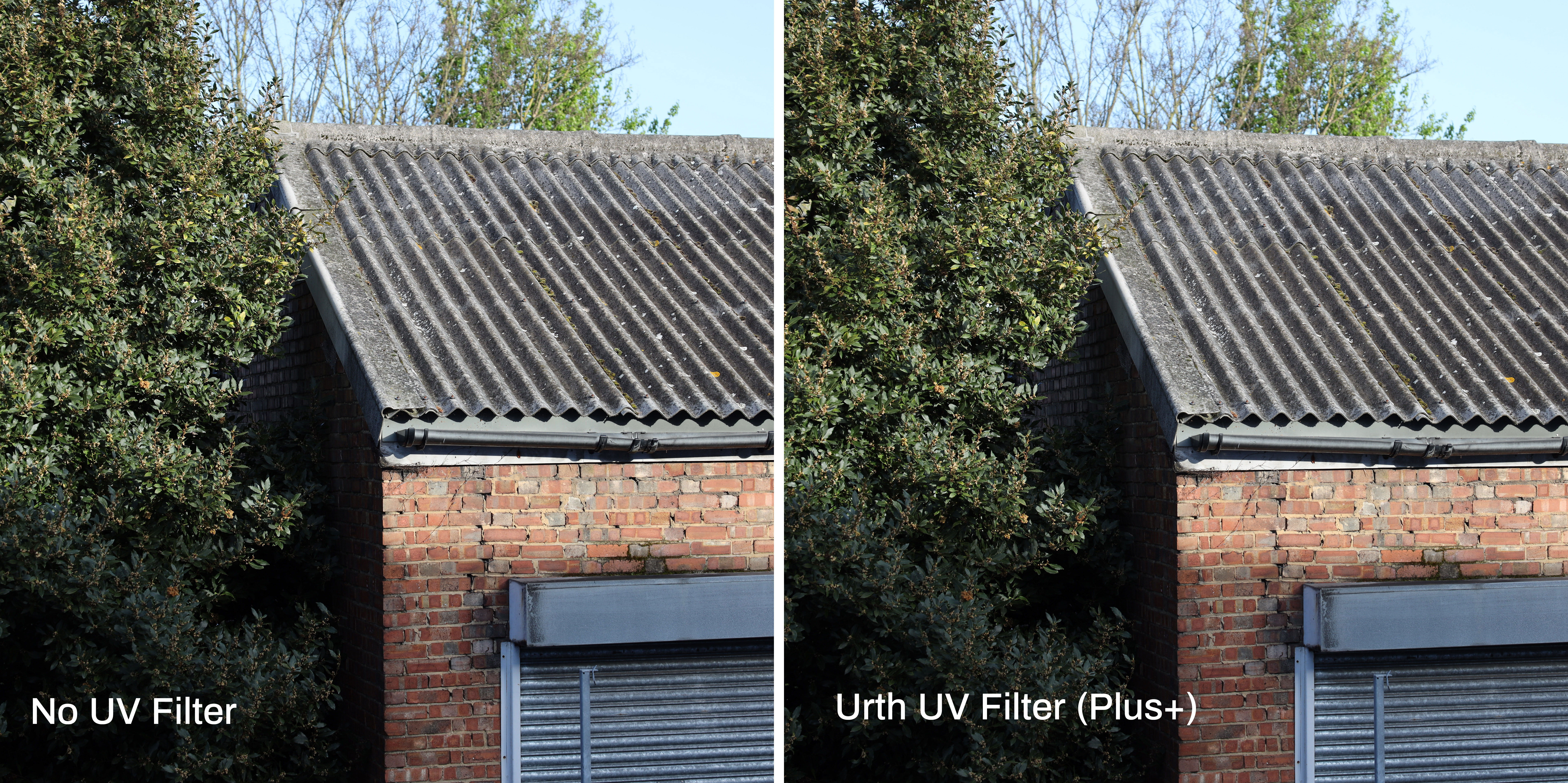
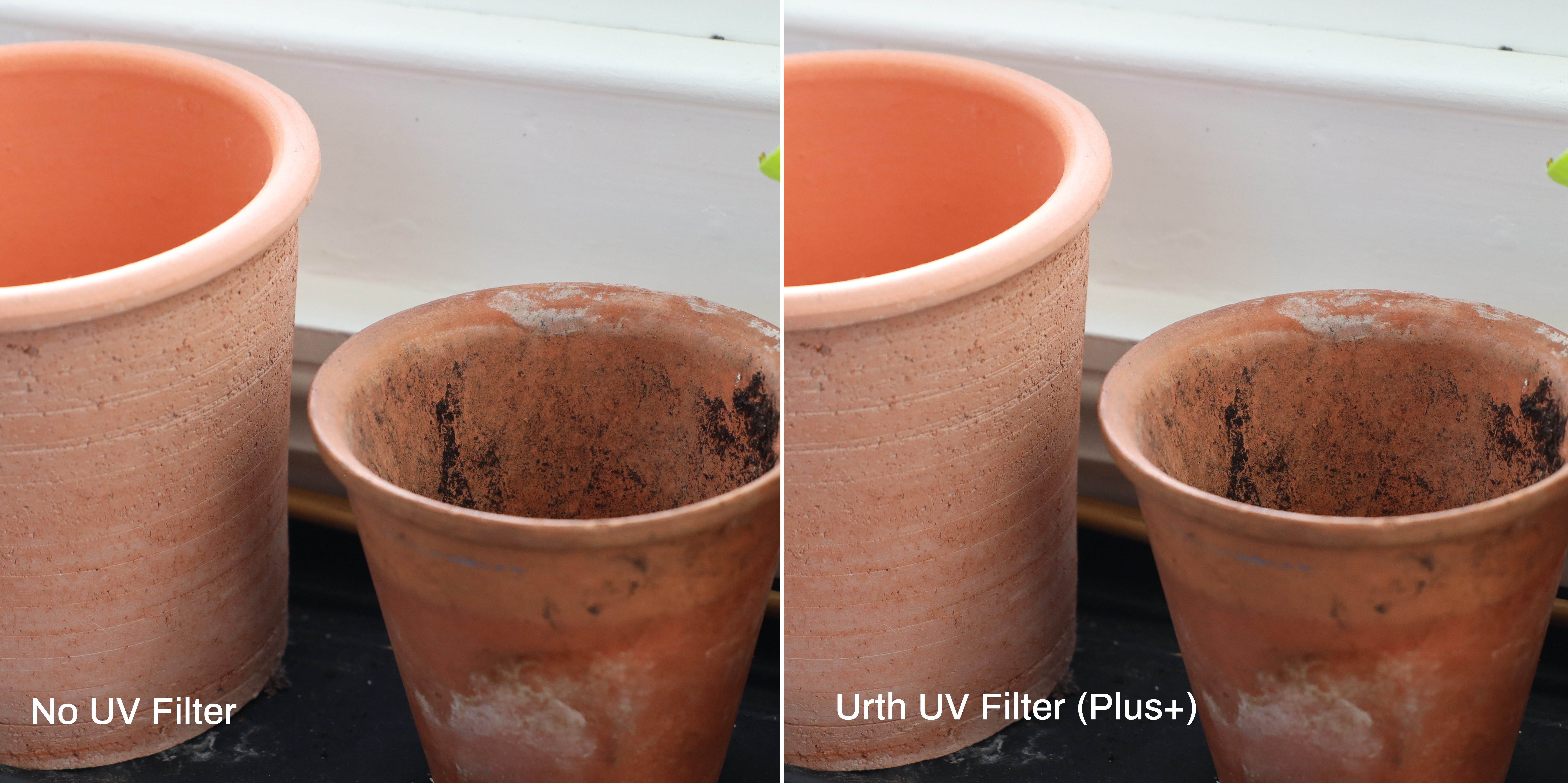
I am not completely convinced that UV filters have much of a noticeable positive effect on images, and I couldn’t see obvious differences between the images I shot with and without the UV filter in terms of ultraviolet-cutting abilities. However this is not necessarily a mark against this filter from Urth, and I think this is true of all UV filters. It is more important that the filter doesn’t negatively affect images, and the Urth UV (Plus+) certainly didn’t.

Urth UV Filter Plus+: Verdict
The Urth UV lens filter (Plus+) stands out for its clarity in preserving the sharpness of images. But beyond its optical performance, Urth impressed me with its minimalist design and its commitment to environmental sustainability.
However, amidst its strengths lies a notable drawback with perhaps its biggest selling point – its unfortunate magnetism. Despite its innovative design, the magnetic agent just fails to securely hold the filter in place, resulting in an irritating rattling and a lot of movement in the filter that raises doubts about the filter's ability to adequately protect a valuable lens.
While the Urth UV (Plus+) offers the option to screw the filter into place for a more secure fit, I struggle to justify the additional cost associated with the magnetic version, and would just opt for Urth's traditional screw-in variety from the get-go and save some cash.
